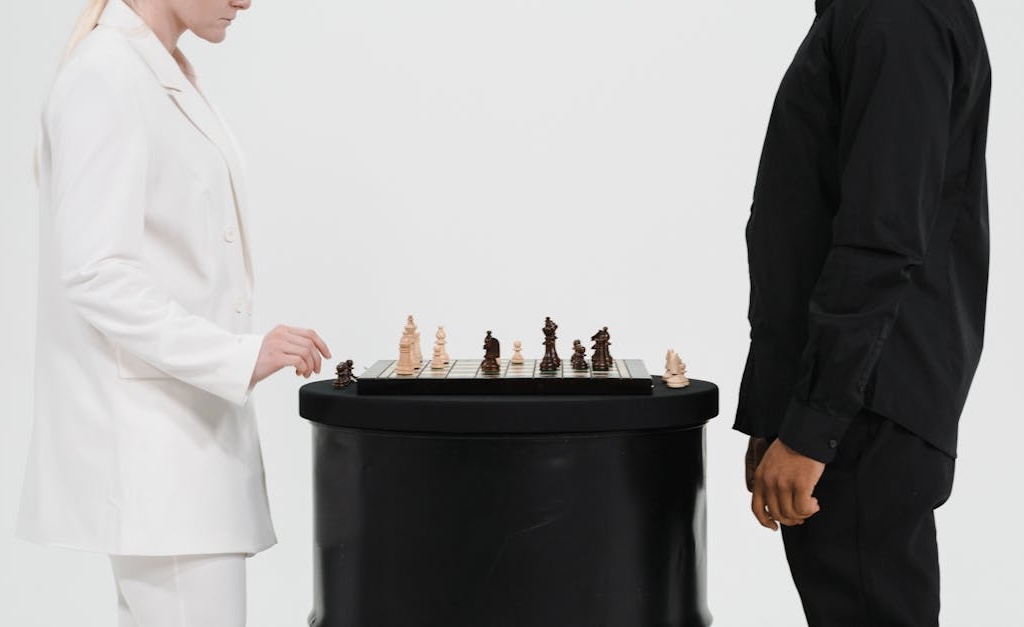Chess vs checkers: How to shape the right mindset

Success in strategic games isn’t just about making moves – it’s about making the right moves. Whether playing chess or checkers, a strong approach involves understanding patterns, thinking ahead, and adapting to different situations. This guide explores key principles that can help shape a strategic mindset for competitive games and beyond.
Understanding the basics of strategic thinking
Every move in a game carries weight, but not all games require the same level of foresight. Chess is often seen as a test of long-term strategy, requiring players to anticipate multiple steps ahead, while checkers relies more on tactical positioning and quick adaptability. Recognising these differences helps players refine their decision-making skills.
The role of planning and adaptability
In both chess and checkers, strategy influences outcomes. Some approaches emphasise careful calculation, while others reward flexibility. Learning when to be aggressive and when to hold back is crucial for success.
- Chess: Rewards long-term planning, pattern recognition, and precise execution.
- Checkers: Emphasises quick decision-making, tactical positioning, and adaptability.
Mastering self-discipline: The key to long-term improvement
Developing a strategic mindset isn’t just about knowing the rules; it’s about maintaining focus and discipline. Setting clear goals and practicing consistency are essential for long-term growth in any competitive field.
Set goals and stay committed
- Define specific objectives before each game session.
- Avoid distractions that hinder concentration.
- Track progress and refine strategies over time.
Choosing the right approach for different scenarios
Different strategies work better in different situations. While some methods focus on calculated risk, others prioritise maintaining control over the board.
- Defensive Play: Minimises mistakes and forces the opponent into errors.
- Aggressive Play: Aims to control the board and dictate the pace of the game.
- Balanced Strategy: Adapts to the opponent’s style and capitalises on weaknesses.
Learning when to press forward and when to hold back
Making the right move isn’t always about advancing – sometimes, patience is key. Recognising the right moment to push forward or stay defensive can make the difference between success and failure.
- In Chess: Waiting for the right opportunity to attack can lead to better positioning.
- In Checkers: Sacrificing a piece at the right moment can create a winning path.
Understanding the odds: Decision-making in competitive play
Some moves have a higher probability of success than others. Analysing different options and assessing potential outcomes helps refine decision-making skills.
- In Chess: Evaluating possible moves and their consequences several turns ahead.
- In Checkers: Identifying sequences that lead to forced captures and positioning advantages.
Smart strategies for popular competitive games
Different games require unique approaches to maximise success. Below are specific strategies for some of the most well-known strategy-based games, including those find on platforms like BitStarz.
Chess: Mastering openings and endgames
- Study common opening sequences to control the board early.
- Develop all pieces efficiently to maintain balance.
- Learn endgame techniques to convert advantages into wins.
Checkers: Controlling the board and forcing moves
- Maintain control of the center to limit opponent options.
- Use forced captures to dictate the flow of the game.
- Recognise key moments to double-jump or sacrifice strategically.
Other games that strengthen strategic thinking
Beyond chess and checkers, many games challenge players to refine their decision-making skills:
- Go: Emphasises territorial control and long-term strategy.
- Shogi: Similar to chess but with an added layer of complexity through piece promotion.
- Backgammon: Involves risk management and probability-based decision-making.
Final tips for developing a strategic mindset
Strategic thinking isn’t just useful in games – it’s a valuable skill in problem-solving, leadership, and everyday decision-making. To strengthen strategic thinking, players should:
- Study patterns and learn from past games.
- Practice patience and avoid impulsive moves.
- Focus on continuous improvement rather than immediate results.
The editorial unit
























Facebook
Twitter
Instagram
YouTube
RSS